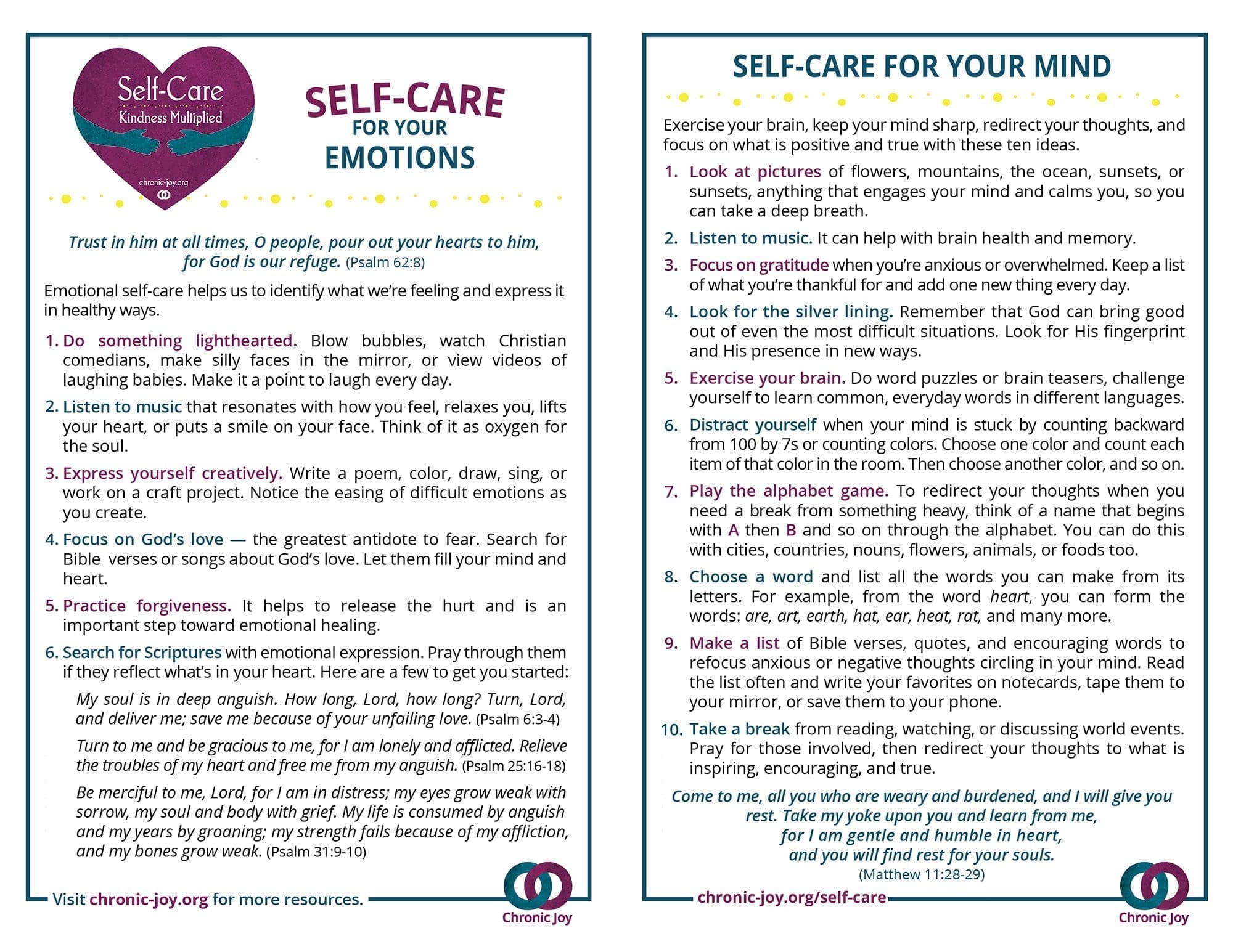
“Trauma is a word with a lot of baggage. The good thing … is that it can be worked through and talked about, felt and soothed, comforted and consoled.” (Emily J. Maurits)
STOPPING TO HEAL: NO CONVENIENT REST POINTS
How many times have you thought:
- “I just need to get through this, then I can stop and pick up the pieces.”
- “The only way forward is through, so I need to get this over and done as quickly as possible.”
While these attitudes might work for certain things (like getting through an essential task after receiving bad news or even doing an unpleasant job like putting out the rubbish), they’re not great attitudes for the long haul.
The thing with watching someone with a chronic illness is that there are no convenient “rest points,” no clearly-marked bench that says, “Stop here and take a breather.”
It can be easy to go on and on – to push down unpleasant emotions or reactions, to bury hurts and pains, to “forget” betrayals and injustices. We’ve taught ourselves that the only correct response to pain is to clench our fists and power through.
The problem with this white-knuckled approach is that it is not a long-term solution. When we push down our hurts or try to barge our way through them, we can often turn them into trauma (as if they weren’t already traumatic). Sooner or later, these undealt-with emotions will explode in anger, anxiety, depression, or physical symptoms. Our body and mind are telling us, “Enough!”
STOPPING TO HEAL: TRAUMA
Trauma is a word with a lot of baggage. Essentially, trauma is any situation where our normal methods for coping aren’t enough. “Big-T” trauma might be anything from abuse to witnessing a crime – situations where we fear for our lives. “Small-t” trauma is anything where we feel unable to cope, even if only for a few minutes before we push that feeling down and “soldier on.”
Most of us have experienced trauma of some kind. It’s part of living in a broken world. There may be situations when we’ve felt helpless as a Watcher, times when we’ve tried to be enough and “failed,” or instances when other people failed us. Trauma and chronic illness often go together.
IT’S NOT ALL NEGATIVE
The good thing about trauma is that it can be worked through, talked about, felt, soothed, comforted, and consoled. It can become something that is part of our journey rather than something that is taking over our journey.
It can be easy to be ashamed of trauma or its effects on our capabilities and responses, to think that it makes us weak, or to compare ourselves to others (“They’re not struggling with this, and our situations are practically the same!”). The truth is that each of us is uniquely created with different values, backgrounds, genetics, experiences, and futures. God has a plan for each of us to bless the world – none of our pathways are the same. In our weakness, He is forming us into the best version of ourselves (into the likeness of His Son) and putting us in a place where we can see Him more clearly.
Trauma can become part of our journey rather than something that takes over our journey.
A RECOMMENDED BOOK
In Try Softer, Aundi Kolber walks us through what it means to be kind and gentle to ourselves and why Jesus wants us to do so. She combines science and Biblical hope as she looks at what it means to be human beings with a soul and a body, detailing why the only way forward is to stop trying harder and start trying softer.
This book is for anyone who has ever found parts of life difficult (Hint: that’s all of us!) and seeks to be reconciled with the past and hopeful for the future. It was a refreshing and compelling read filled with practical tips, Aundi’s own story, and Jesus ever-present.
My friends, if we are going to survive and thrive in Watching (as caregivers) for the long haul, we need to lay down our fear, our pride, our preconceptions – and seek rest in the presence of Jesus. Let us stop and heal so we can live and love.
First published at calledtowatch.com. Published with permission.
QUESTIONS TO CONSIDER
- Are you good at stopping to heal?
- What’s the first step you can take to do so today?


Emily J. Maurits
Contributing Writer
After working for several years in public health, Emily is studying theology. She believes we are all called to love suffering people because it is what Jesus did. She is passionate about equipping and encouraging others to do just that and founded calledtowatch.com for the family and friends of those with chronic illness. As well as uncovering God's presence in the chaos of life, she enjoys reading, running, and writing. Check out her memoir Two Sisters & a Brain Tumour.

Self-Care for your Emotions & Mind
Exercise your brain, keep your mind sharp, redirect your thoughts, and focus on what is positive and true with these ideas. Emotional self-care helps us identify what we’re feeling and how to express it in healthy ways.

Recent Comments